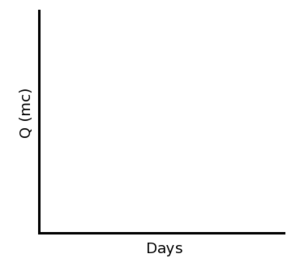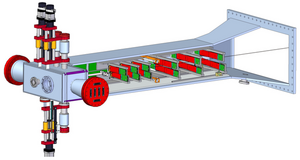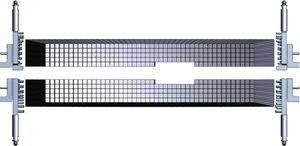The HPS Run Wiki
Important Phone NumbersShift ScheduleShift-Taker's Checklist (old)Hot CheckoutBeam Time AccountingHPS Run Spreadsheet |
Procedures
|
Manuals |
JLab Logbooks
|
RC: Maurik Holtrop
PDL: Stepan StepanyanEvery Shift:
SVT InstructionsBefore sending beam to Faraday cup, verify (and page SVT expert if otherwise):
The first time sending beam to the Faraday cup after the hall is closed, page the SVT expert.
Acceptable Beam Conditions:Before accepting beam, make sure all the conditions are met - beam profile and halo rates are what you expect (or very close to it). If unsure call to RC, PDL, or beamline expert!
Always read previous log entries, compare settings of BPMs and correctors with previous settings using scaler_hps GUI. Every Run:
|
Run Plan: April 17-22, 2015 (day/swing/owl)April 17 Swing and Saturday April 18 Owl are cancelled. Saturday April 18 Day shift should count on coming in. During week days, Mon-Thursday, there will be no Day shifts due to work in the hall. Friday day shift may happen, so be prepared. Short Term Schedule: Restore Beam We will be running with 1.05GeV beam. This beam needs to be carefully restored, first to the faraday cup, then the alcove. Before sending beam to the alcove, call the RC.
When we're back, proceed with program MCC works on beam optics and matching, and tunes beam to tagger
Standards are on this page: ACCEPTABLE BEAM CONDITIONS.
Restore Beam to the Hall-B Dump
Energize Chicane
Be very careful when changing magnet currents when beams are on. Must enter new current ACCURATELY. Small steps (few amps) only.
Are we centered? Beamline Expert should enter new target positions if not.
Subsystem Commissioning Studies. Begin Data Taking. DO NOT RUN MORE THAN 30 MINUTES ABOVE 50 nA WITHOUT THE BEAM BLOCKER
| ||||||||||||||||||||||||||||||||||||||||||||||
| Trigger | |||
|---|---|---|---|
| FADC | GTP | ||
| NSB/NSA | 20/100 ns | Samples Before/After | 3/3 |
| Readout Threshold | 12 ADC | Seed Threshold | 80 MeV |
| SSP | |||
| Singles-0 | Singles-1 | ||
| # Hits | >2 | >2 | |
| Cluster Energy | 0.1 < E < 2.5 GeV | 0.5 < E < 1.2 GeV | |
| Pairs-0 | Pairs-1 | ||
| Cluster Energy | 0.9 < E < 1.3 GeV | 0.1 < E < 0.6 GeV | |
| Energy Sum | 0.19 GeV < E < 2.2 GeV | 0.21 < E < 1.0 GeV | |
| Energy Difference | dE < 1.2 GeV | dE < 0.65 GeV | |
| Coplanarity | N/A | Theta < 40 deg | |
| Energy Slope | N/A | > 0.6 GeV | |
| TI Prescales | |||
| Singles-0 | Singles-1 | Pairs-0 | Pairs-1 |
| 0 | 0 | 0 | 0 |
|
|
| ||||||||||||||||||||||
|
|
|
| ||||||||||||||||||||||||||||||||||||||||||||||
|
Webcams: |
Trigger: |
Accelerator: Slow Controls:
|
Online & Offline: |


